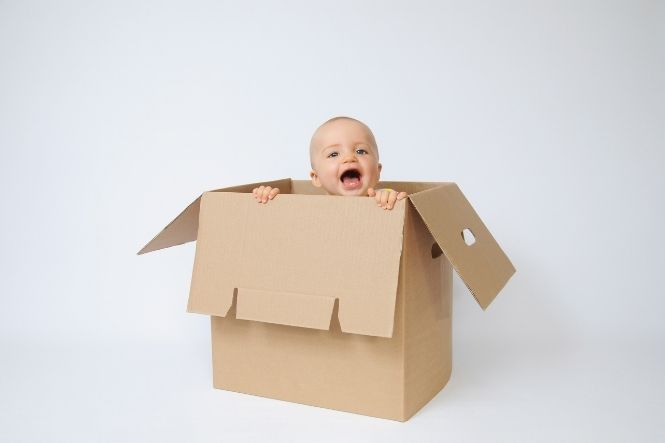Read this article to find out when your toddler will stop getting into everything and tips for how to protect them and your stuff.
Children usually stop trying to get into everything around 4 or 5 years old. This is because they have gone beyond the discovery phase of their life, where they learn best by investigating on their own and instead go into more organized learning such as going to school. However, every child is different, so your toddler may stop earlier or later.
Toddlers are highly active and curious about the world around them, and they want to discover and understand anything and everything that they come in contact with. While it can be frustrating for some parents, it is a natural part of the cycle of growing up that kids will eventually outgrow.
It is usually around the age that kids start going to school that they become less curious and less likely to get into everything. There isn’t much to do to stop this instinct, so the best choices are to prevent any kind of accident. Toddlers don’t understand what danger means, so parents need to ensure that the environment is as safe as possible.
Table of Contents
When Do Toddlers Stop Getting into Everything?
The most common age when toddlers stop trying to get into everything is 4 to 5 years of age. This was when most children started going to school, and they’re not really in the toddler stage anymore. However, every child is different and will grow at their own pace, so that some children might curve their curiosity sooner or later.
They won’t be toddlers anymore once they decide that maybe getting into everything isn’t such a good idea. Usually, they have become young children and are at the point where they’re going to school and doing other activities. This might curb some of their curiosity as they interact with other kids and learn about new things through formal settings.
You’re going to have to keep an eye on your toddler to see whether or not there developing faster or slower than the timeline stated above. Some children will grow out of this curiosity quickly, and others will continue to have a more mischievous side. Just enjoy that you are keeping your children out of anything that might harm them will also feeding into their curiosity.
Why Do Toddlers Get into Everything?
Exploring their environment and different objects, they come in contact with as a way of learning. Toddlers have a natural curiosity to try and understand what’s going on around them, so the chances of them getting into anything they can find are very high. It’s less about how you can stop them from getting everything and more about how you can focus their attention on specific things.
Toddlers learn best by interacting directly with the things they are curious about. It’s why many toddler toys involve textures, different colors, and even sound effects. Chances are your toddler is trying to get into everything simply because they want to understand what it is and how it works. They won’t know what’s harmful and what isn’t until they interact with it.
You should try to incorporate things they can interact with similar to the things they already want to get into. If they like to climb on furniture they shouldn’t, then you should give them some kind of play structure that they’re allowed to climb on. If they want to get into your makeup brushes, get them their own toy brushes to play with alongside you.
What Parents Can Expect from Curious Toddlers
It’s safest to assume that your toddler will get into everything. Because of that, it’s essential for you to supervise constantly and to make sure that there are childproof areas of your home that your child is allowed to interact with. If something valuable to breakable items you don’t want them to interact with, make a specific room before those objects, such as a master bedroom.
It’s essential to remember that your toddler is going against something you’ve told them or one of the house rules he’s in because they’re trying to challenge your Authority. This disobedience about what they can and cannot touch is because they are curious about exploring their environment and want to be their own person. Toddlers have a hard time understanding Authority and what might harm them.
It would be best to think of all the ways that your toddler could interact with different objects. They’re not going to explore with their hands but also their mouths. That means you don’t only want to have things out of reach that you don’t want them physically touching, but you should also be aware of things that shouldn’t go into their mouth.
Tips for Dealing with Curious Toddlers
The best thing you can do to keep your toddler safe while they continue to explore is to supervise them. You also want to have specific areas that are safe for your toddler to interact with, such as playrooms or your living room, or anything breakable or valuable is out of reach. Try to keep those objects in a specific place that your toddler isn’t allowed to go into.
Since you were toddlers aren’t going to get out of their curious phase until about their 4th birthday, it’s time to think of ways to manage them to keep them safe and ensure that anything valuable doesn’t get ruined in the meantime. Taking some precautions about what they can and cannot get into can help them explore what they are curious about while keeping them safe.
Some ideas of what you can do to cope with your toddler getting into everything on our:
- Always supervise your toddler: The only way you’re going to be able to keep your child from getting into things they shouldn’t is if you were keeping a close eye on them. Ensure that you can be in the same room as your toddler.
- Childproof any rooms toddlers will be in regularly: Toddlers aren’t going to remember what you said they can and cannot touch. It’s vital that you childproof any rooms they’re going to be in regularly so that they physically cannot get to particular objects that might harm them.
- Don’t try to explain the danger to them because they won’t understand: Toddlers aren’t developed enough to understand what danger means. Trying to explain to them that something will hurt them or could otherwise be dangerous isn’t going to make sense in their heads, nor are they going to remember it.
- Place anything valuable or breakable out of reach: There aren’t any benefits to having temptations for your toddler’s curiosity. Having things within reach that could be harmful to them will only result in them finding a way to get a hold of them. You can teach them what they can and cannot touch later in life.
- Keep anything valuable or breakable in a space where the toddler isn’t allowed: Having areas in your house that are specifically not for your child can be a straightforward way to hold valuable and breakable things. You could have it so that baby gates close off the kitchen so they can’t get into fragile dishes or cleaning products. You can also have baby locks in your master bedroom to have valuable items there.
- Distract them with something they are allowed to play with instead of telling them not to play with certain things: Telling them not to play with specific things isn’t going to have any long-lasting effect. Instead, distract them with toys and other things that they are allowed to play with so that you’re redirecting your attention away from something that could potentially be harmful to them or that you don’t want them to break.
- State what behavior you want of your toddler instead of what you don’t wish to, for example, “feet should stay on the ground” instead of “don’t climb on that.” Toddlers find it challenging to respond to only verbal commands, so offering them what you want them to do with some kind of physical representation can be the best way to let them know what kind of things are allowed.
- Use physical demonstrations instead of verbal commands: it’s easier to use an actual demonstration of the behavior you want than to give a toddler any kind of verbal commands. They don’t have enough language knowledge to understand what you are saying entirely, so showing them is a much better tactic.
There’s no way to get around a toddler’s intense curiosity, and they’re going to have a limited amount of impulse control. They’re going to want to get into basically everything they come across until they turn four years old. They will start to learn what different things are and what is harmful to them. Until then, all you can do is redirect their curiosity.
Conclusion
Expect your toddler to be investigating anything and everything until there about 4 or 5 years old. Toddlers are naturally curious, and it’s a way for them to explore their environment and figure out what things are and how they work. The best you can do is protect them from anything that might break or cause them harm and redirect their focus to safe things for them.






